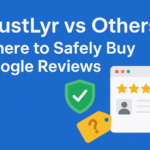Running a business is never without challenges, and one area that often creates costly problems for employers is compliance with wage and hour laws. From unpaid overtime claims to disputes about breaks or timekeeping, even small mistakes can escalate into lawsuits. That’s why many organizations turn to an employment defense attorney when faced with complex legal issues. But the smartest move is often prevention—understanding the rules and implementing safeguards before a claim ever arises.
For employers in White Plains and across New York, wage and hour compliance requires careful planning, clear communication, and a proactive approach. Below, we’ll explore common pitfalls and best practices that can help businesses protect themselves and foster healthier relationships with their employees.
Understanding Wage & Hour Laws in New York
The first step in avoiding disputes is knowing the rules. In addition to federal laws such as the Fair Labor Standards Act (FLSA), New York imposes its own standards, many of which are stricter. Employers must pay close attention to requirements for minimum wage, overtime, recordkeeping, and meal breaks.
Some of the most common disputes involve:
- Overtime pay: Misclassifying employees as exempt can lead to claims for unpaid overtime.
- Meal and rest breaks: Employees denied proper breaks may be entitled to back pay.
- Recordkeeping errors: Failing to maintain accurate time and wage records creates exposure during audits or lawsuits.
- Off-the-clock work: If employees perform tasks outside of regular hours, employers may still be liable for compensation.
Even well-intentioned mistakes can be costly. That’s why consulting an employment defense attorney to review policies or address gray areas can be a wise step.
The Cost of Wage & Hour Disputes
Wage and hour disputes don’t just drain finances—they can damage reputation, reduce productivity, and lower employee morale. A single class action lawsuit can put an entire business at risk. Employers may face:
- Back pay and damages owed to employees
- Penalties and fines under New York labor laws
- Legal expenses for defending claims
- Negative publicity that harms brand credibility
When you consider these potential consequences, it becomes clear why proactive compliance is far less expensive than fighting claims after the fact.
Best Practices Employers Can Adopt
1. Classify Employees Correctly
Misclassification is one of the leading causes of disputes. Employers must distinguish between exempt and non-exempt employees under both federal and state law. For example, just giving someone a managerial title does not automatically exempt them from overtime pay. Careful review of job duties is essential.
2. Keep Meticulous Records
Accurate records are a lifeline during audits or lawsuits. Employers should track:
- Hours worked each day
- Overtime earned
- Break times
- Rates of pay
Modern timekeeping software can help, but employers must still verify that records are correct and secure. An employment defense attorney can also advise on what information must be preserved in case of litigation.
3. Train Managers and Supervisors
Supervisors are often on the front lines of wage and hour compliance. They should be trained to understand the rules, avoid pressuring employees to work off the clock, and document scheduling decisions properly.
4. Implement Clear Policies
Written policies around overtime approval, breaks, and reporting hours should be communicated to every employee. These policies should also explain how workers can raise concerns without fear of retaliation.
5. Conduct Regular Audits
Periodic self-audits, ideally with legal guidance, help catch issues before they spiral. This might involve reviewing pay practices, evaluating exempt classifications, or comparing actual duties to job descriptions.
6. Encourage Open Communication
A culture of transparency can prevent disputes from escalating. If employees feel comfortable raising concerns internally, employers have the chance to resolve issues before they turn into legal claims.
The Role of an Employment Defense Attorney
Even with the best practices in place, disputes can still arise. That’s where an experienced employment defense attorney plays a vital role. Attorneys can:
- Defend employers in wage and hour lawsuits
- Represent businesses during Department of Labor audits
- Negotiate settlements to minimize financial exposure
- Provide ongoing counsel to keep practices compliant
For businesses in White Plains, working with an attorney who understands both federal and New York labor laws ensures that defenses are built on solid ground. Proactive legal advice can also reveal gaps in compliance that might otherwise go unnoticed.
Adapting to New Challenges: Remote and Hybrid Work
The rise of remote and hybrid work arrangements has added new layers of complexity to wage and hour compliance. Employers must consider:
- How to track hours accurately when employees work from home
- Whether commuting or setup time counts as compensable work
- Ensuring breaks are honored even outside traditional office settings
An employment defense attorney can help companies adapt their policies to these evolving realities, reducing the likelihood of disputes in this modern work environment.
Why Prevention Matters
Ultimately, prevention saves both time and money. Employers who prioritize compliance not only reduce their legal risks but also strengthen their relationships with employees. Workers who feel respected and fairly compensated are less likely to seek legal remedies.
By combining strong internal policies, regular audits, and professional legal guidance, businesses in White Plains can safeguard themselves against wage and hour disputes.
Conclusion
Wage and hour disputes can be a significant burden for employers, but they are far from inevitable. With careful planning, transparent practices, and the support of a knowledgeable wage and hour defense attorney, businesses can implement effective wage and hour violations defense strategies to create a workplace that is both legally compliant and employee-friendly. Staying ahead of potential problems is the smartest strategy. By prioritizing compliance today, employers can avoid costly disputes tomorrow—and focus instead on building a thriving, sustainable workplace.





